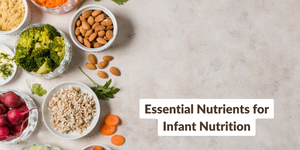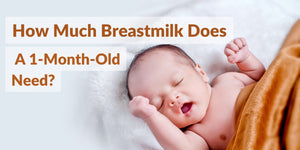Food allergies are some of the most common allergies in children under the age of three. They are seen in about 5% of children younger than 5 years old. Food allergies often get in the way of healthy growth, as a child may not eat properly, throw up, or have diarrhoea. Hence, parents should be quick on their toes and know the ways to prevent food allergies in babies.
An allergic reaction is the body’s defence against something that may cause harm. A food allergy occurs when the body believes a certain food item (allergen) may cause harm and produces special antibodies to destroy the allergen. When an allergen is ingested, the body releases histamine, a chemical that causes allergic symptoms.
What are the symptoms of food allergies?
High-risk allergy foods for babies usually trigger the following symptoms within 30 to 60 minutes of ingestion of the allergen:- Diarrhoea
- Vomiting
- Bleeding through the rectum, with or without mucus
- Tingling or itching in the mouth
- Urticarial swelling in the face, neck, and limbs
- Hives
- Cramps
- Tightness or itching in the throat
- Wheezing or breathing difficulty
- Fall in blood pressure
What can cause food allergies?
Some common foods that can cause an allergy in children include:- Eggs
- Milk
- Peanuts
- Fish
- Shellfish
- Wheat
- Nuts (e.g., walnuts and cashews)
- Soy
Can food allergies be prevented in children?
When you know which foods your kid is allergic to, you can prevent the allergy by avoiding the allergen and items belonging to the same food group. If you breastfeed, you should avoid consuming foods that your baby is allergic to, as the allergen may pass on to the baby through breast milk. If your child is allergic to formula milk, the doctor may recommend switching to a soy-based or hypoallergenic formula, or you may need to breastfeed.Although dining outside may seem difficult if your baby has a food allergy, it can be managed. Let the restaurant staff know about your child’s allergy and check all the ingredients used in a dish before you order it. Avoid fried foods as the restaurant may have used the same oil to fry different foods.
Additionally, avoiding buffet restaurants is the best way to prevent food allergies in babies due to cross-contamination between food items. You may also use a food allergy card to give to the staff. This card states what your child is allergic to and has some basic reminders to wash all the utensils properly before preparing your child’s food.
You should always read the packet labels before you buy any food packets. Most food packets should state if they contain any of the common allergens. Keep antihistamines with you at all times to help control mild allergy symptoms, and you may need an epinephrine auto-injector for serious allergic reactions if your child has had a severe allergic reaction in the past. Keeping keen with these tips is a great way to prevent food allergies in babies. Always make sure to consult your doctor before using any of them, though.
In some children, the doctor may reintroduce the food items they are allergic to after about 3 to 6 months to see if they have outgrown the allergy. It has been observed that some children, at about three to four years of age, can tolerate the foods they were allergic to earlier.
When to visit the doctor?
If your kid has ingested any high-risk allergy food for babies and they start showing signs of an anaphylactic reaction, rush them to the doctor immediately. An anaphylactic reaction is a potentially fatal allergic reaction that can start without any warning and worsen quickly.Some of the symptoms include:
- Difficulty in breathing or noisy breathing
- Diarrhea or vomiting
- Hives or redness of the skin
- Swelling in the tongue and throat
- Loss of consciousness
- An extreme drop in blood pressure
Children sometimes outgrow their allergies by the age of 5 years. The allergies that children mostly outgrow are milk, eggs, wheat, and soy allergies. However, children may not outgrow allergies to other foods.
The best way to prevent an allergy is to be careful about what your child eats and avoid foods that can cause an allergic reaction. Keeping emergency medication on hand is essential. Just remember, it is better to be safe than sorry.
Discover a glossary of tips, nutritious recipes, a milestone tracker, and activities perfect for your little one on their developmental journey on the BabyG App today!
References:
- Johns Hopkins Medicine. Food allergies in children [2021].
- KidsHealth. Food allergies [2021].
- American College of Allergy, Asthma & Immunology. When to see an allergist [2021].






LEAVE A COMMENT